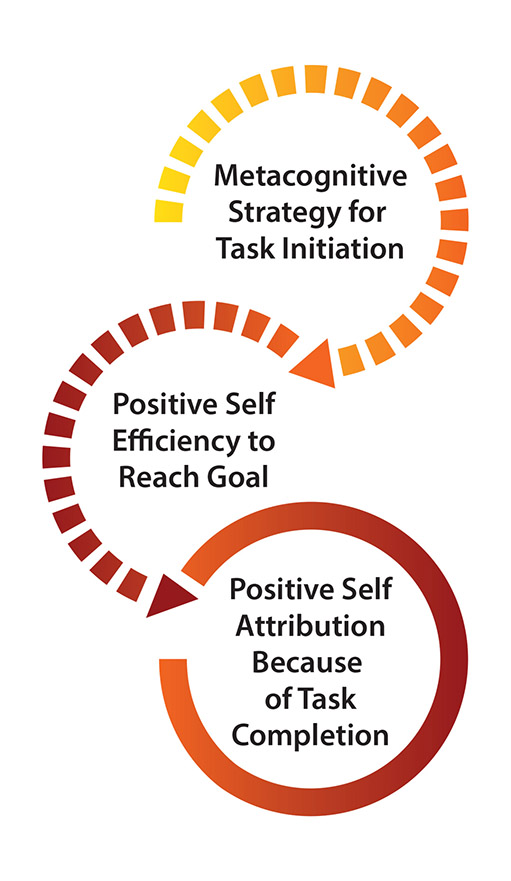Show Navigation Menu
Section Two : Becoming a Researcher/Scholar
Introduction | Role and Dispositions of Doctoral Learners | Emotional Expectations | Internalizing Knowledge |
Becoming an Independent Learner | Academic Preparation | Conclusion | References
Chapter 3: The Doctoral Identity
Hide Navigation Menu
Home Page
Section 2 Becoming a Researcher/Scholar / Chapter 3 The Doctoral Identity

Metacognitive strategies may assist learners in recognizing which research articles to include in their essays and how those articles speak to the concepts at hand.
4. Internalizing Knowledge
At this stage in an academic career, learners should how they best learn, retain, and recall information to apply to new concepts and questions. Perhaps learning is more effective in a quiet environment such as the library. Perhaps information is retained more readily when it is read and reread several times. Metacognition, or thinking about thinking, is a strategy important to master in order to hone the critical-thinking skills necessary to understand disparate concepts and theories. Doctoral learners will need to understand how to synthesize ideas into the literature review of their dissertations. Metacognitive strategies may assist learners in recognizing which research articles to include in their essays and how those articles speak to the concepts at hand. These strategies are fluid, however. Learners will find that different professors have different expectations about what seminal material is essential and what peripheral material is not as relevant.
Bandura’s (1997) theory of self-efficacy and Weiner’s (1985) concept of attribution theory are models directly related to the doctoral journey, and the two tie together and relate nicely to the concept of metacognition. Bandura (1997) suggested that the strength of a person’s belief that he or she can complete a task successfully is related directly to the eventual accomplishment of that goal. The greater a learner's self-efficacy, the more likely he or she is to reach the goal. Weiner (1985) proposed that in a learning context, individuals are motivated by the successful outcome of completing an academic task because of the way successful completion makes individuals feel about themselves. Both theories are similar in the sense that behavior is directed positively toward the successful completion of a goal, and completion of that goal creates a feeling that something important has been accomplished. Individuals recognize they are able to persevere and break down obstacles to reach their goals. The circular fashion in which the concepts of metacognition, self-efficacy, and attribution are tied together is illustrated in Figure 3.1.

Figure 3.1
Once doctoral learners use metacognition to identify an effective strategy to initiate their tasks, they approach the task with their toolbox of research, critical-thinking, and effective writing strategies. Completing similar challenges in previous course work reaffirms the self-efficacy that they are able to break down the obstacles necessary for completion of the assignment. After completing the assignment, they feel good about themselves because it was a difficult goal, and, by completing it, they now have knowledge to complete subsequent assignments. From a theoretical perspective, this sounds easier than the actual application; but that is the point. Once learners have achieved a goal, they have strategy, motivation, and reward for their efforts and something to fall back on when the next difficult assignment is presented.